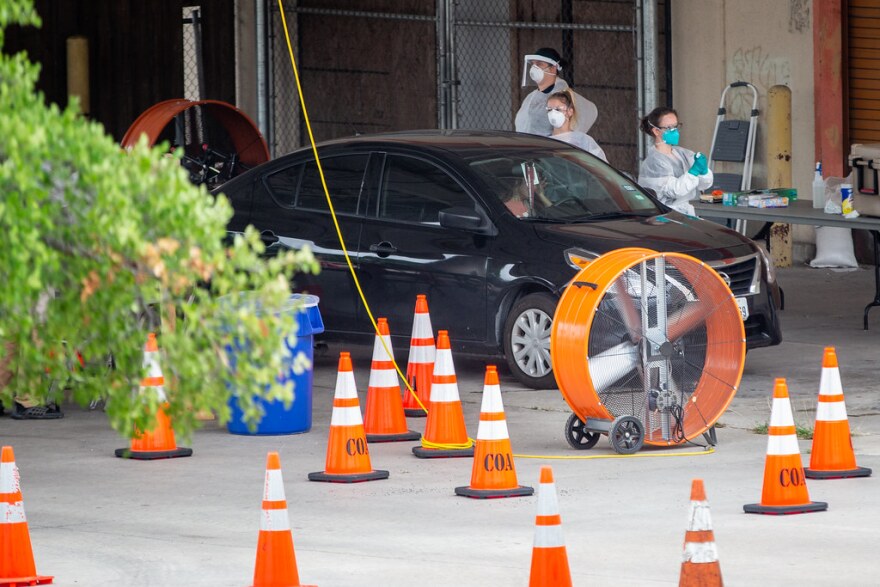While the Austin area doesn’t currently have a shortage of hospitals, ICU beds or ventilators, that could all change if the upward trend in COVID-19 cases and hospitalizations continues over the next three to five weeks, the local health authority said on Wednesday.
“We’ve learned over and over again that we can’t wait until the hospitals are full,” said Dr. Mark Escott, interim health director for Austin Public Health, at a news conference. “We can’t wait until we run out of ICU beds or ventilators before we take action.”
Travis County saw a 90% increase in the number of new COVID-19 cases last week compared to the week before. Data suggests that the number of infected people will double every 25 days. That’s up from 44 days last week.
Watch the video below:
Escott said hospital admissions which previously held steady at 8 to 10 per day have increased to more than 20 per day. That’s one the of the factors that moved Austin on Sunday to stage 4 of APH’s risk-based guidelines.
Stage 4 asks higher risk individuals to avoid any social gatherings or gatherings with more than two people. It also asks for lower risk people to avoid dining out or shopping except at essential businesses.
Escott said between June 8 and June 14, Latinos made up 65% of COVID-19-related hospital admissions and African Americans made up 9.2%. Both groups were overrepresented compared to their percentage of the total population.
APH officials reiterated the need to improve behaviors to flatten the curve, including physically distancing from others, wearing face masks and practicing good hygiene. Escott said he understands that these simple protections are not exciting, but “that’s how we control the size of this storm.”
Acting Director for APH Adrienne Sturrup said health officials are trying to address some of the barriers to accessing tests. This week the health authority activated a nurse line to help people without computers or e-mail to register for a test in one of over 200 languages by calling 512-972-5560. Last Saturday, APH hosted an online meeting with Spanish speakers to find out what additional actions APH could take.
The health authority is ramping up the number of people working on case investigation and contact tracing. They currently have 48 people in that role and are aiming for a total of 115. Other organizations including University of Texas Dell Medical School, CommUnityCare and Central Health are also contributing resources.
Those workers will advise people who either tested positive for COVID-19 or were exposed to someone who did, to isolate or quarantine at home. But for those who don’t have their own room and bathroom, Escott said they should take advantage of hotel rooms Austin and Travis County have set aside specifically for them in the hopes of reducing household transmission.
APH Chief Epidemiologist Janet Pichette emphasized contact tracing was an important way to flatten the curve and that information collected by the health authority is protected under privacy laws.
“We don’t share that information with any enforcement bodies,” Pichette said. “Our goal is to try to mitigate and squash an outbreak should it occur within a setting.”
Ahead of Father’s Day weekend, Escott said although it will be hard to not gather together as families, we have to protect those who are at risk.
“And our fathers, my father, is at risk,” he said.
If you found the reporting above valuable, please consider making a donation to support it. Your gift pays for everything you find on KUT.org. Thanks for donating today.





